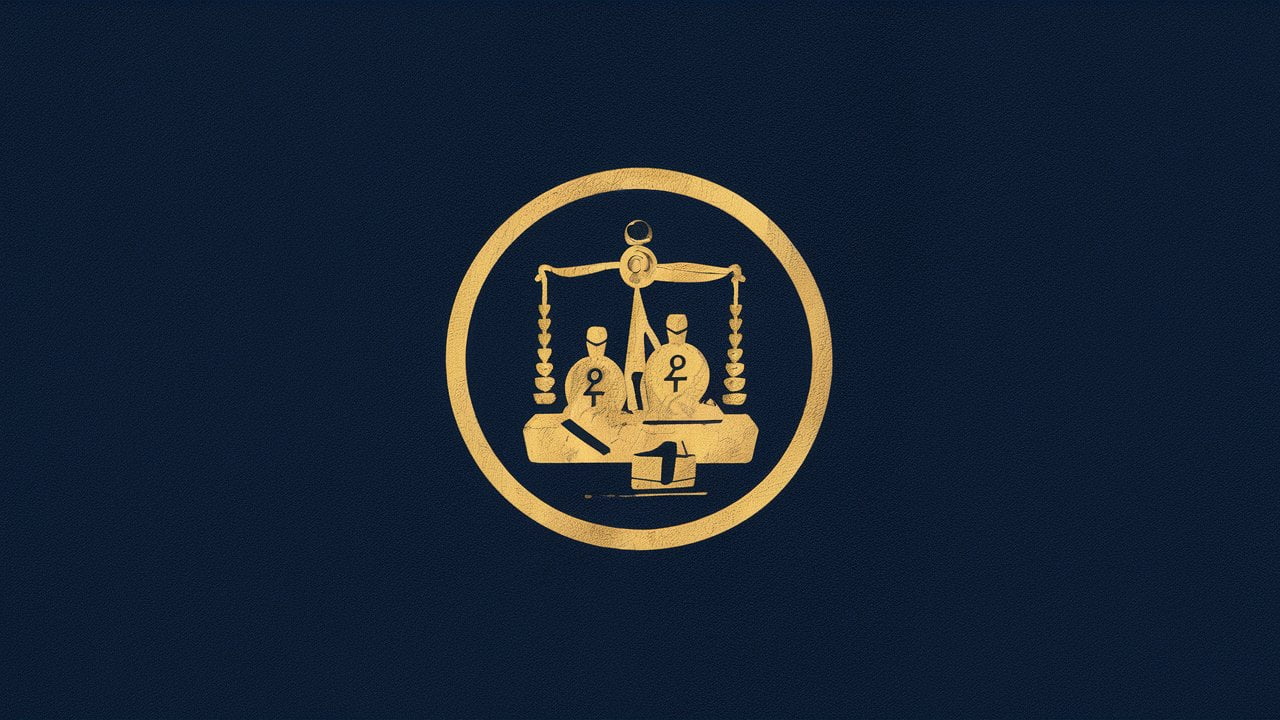Debt Collection Attorney: The Ultimate Guide to Legal Debt Recovery

Debt collection can be a complex and frustrating process, especially when you’re trying to recover money owed to you or your business. This is where a debt collection attorney becomes invaluable. In this comprehensive guide, we’ll explore the ins and outs of debt collection law, the role and benefits of hiring a debt collection attorney, and provide insights on how to choose the right legal professional for your needs. Additionally, we’ll delve into the legal strategies used in debt recovery, the challenges faced, and the future of debt collection practices.
Debt Collection Attorney
A debt collection attorney specializes in the legal aspects of recovering money that is owed. These attorneys work on behalf of creditors to ensure that debts are collected in accordance with the law. Their expertise covers various types of debt recovery, from personal loans to business debts and unpaid invoices.
Understanding Debt Collection Law
To fully appreciate the role of a debt collection attorney, it’s essential to understand the legal framework governing debt collection.
Legal Framework
Debt collection is regulated by both federal and state laws. The primary federal law is the Fair Debt Collection Practices Act (FDCPA), which sets the standards for debt collection practices and protects consumers from abusive tactics. Additionally, state laws may impose further regulations and provide additional consumer protections.
Consumer Rights
Consumers have specific rights when it comes to debt collection. These rights include being informed of the debt, disputing the debt, and protection from harassment. A debt collection attorney must navigate these regulations to ensure compliance while effectively recovering debts for their clients.
Role of a Debt Collection Attorney
A debt collection attorney brings a range of skills and knowledge to the table, ensuring that debt recovery is handled legally and efficiently.
Legal Expertise
Debt collection attorneys are well-versed in the laws and regulations related to debt recovery. This expertise allows them to advise clients on the best legal strategies and to take appropriate legal actions when necessary.
Negotiation Skills
Often, the initial approach to debt collection involves negotiating with the debtor. A debt collection attorney uses their negotiation skills to reach a settlement that is acceptable to both parties, potentially avoiding the need for litigation.
Court Representation
If negotiations fail, a debt collection attorney can represent the creditor in court. This involves filing a lawsuit, presenting evidence, and arguing the case to secure a judgment in favor of the creditor.
When to Hire a Debt Collection Attorney

Knowing when to hire a debt collection attorney can make a significant difference in the outcome of your debt recovery efforts.
Recognizing the Need
It’s time to consider hiring a debt collection attorney when attempts to collect the debt on your own have been unsuccessful, the debtor is unresponsive, or the amount owed is substantial enough to warrant legal intervention.
Business and Personal Debts
Debt collection attorneys can handle both business and personal debts. Whether you are a business owner dealing with unpaid invoices or an individual seeking to recover a personal loan, a debt collection attorney can help.
Benefits of Hiring a Debt Collection Attorney
There are several compelling reasons to hire a debt collection attorney.
Efficiency
A debt collection attorney can expedite the debt recovery process. Their legal expertise and experience allow them to navigate the complexities of debt collection quickly and effectively.
Legal Protection
By hiring a debt collection attorney, you ensure that your debt recovery efforts comply with all relevant laws and regulations. This legal protection helps avoid potential lawsuits and penalties for illegal debt collection practices.
Increased Recovery Rates
Debt collection attorneys often achieve higher recovery rates compared to attempting debt collection on your own. Their professional approach and legal authority can persuade debtors to pay more readily.
Types of Debt Collection Cases
Debt collection attorneys handle a variety of cases, each requiring a different approach.
Personal Loans
Recovering personal loans can be challenging, especially if the debtor is a friend or family member. A debt collection attorney can handle these sensitive situations professionally, maintaining relationships while pursuing the debt.
Business Loans
Businesses often face significant financial strain when customers or clients fail to pay their debts. A debt collection attorney can help recover these funds, ensuring the business remains financially stable.
Unpaid Invoices
Unpaid invoices can disrupt cash flow and hinder business operations. A debt collection attorney can take legal action to recover these funds, allowing the business to continue functioning smoothly.
The Debt Collection Process
The process of debt collection involves several stages, from the initial consultation to potentially filing a lawsuit.
Initial Consultation
The first step in hiring a debt collection attorney is an initial consultation. During this meeting, the attorney will review the details of the debt and advise on the best course of action.
Demand Letters
One of the first actions a debt collection attorney will take is to send a demand letter to the debtor. This letter formally requests payment and outlines the consequences of failing to pay.
Filing a Lawsuit
If the debtor does not respond to the demand letter, the next step may be to file a lawsuit. This legal action can result in a court judgment requiring the debtor to pay the debt.
Choosing the Right Debt Collection Attorney

Selecting the right debt collection attorney is crucial for successful debt recovery.
Experience
An experienced debt collection attorney will have a proven track record of successfully recovering debts. Look for an attorney with experience in handling cases similar to yours.
Reputation
The reputation of a debt collection attorney can provide insight into their effectiveness and professionalism. Look for reviews and testimonials from previous clients to gauge their reputation.
Fees and Costs
Understand the fees and costs associated with hiring a debt collection attorney. Some attorneys may work on a contingency basis, meaning they only get paid if they recover the debt.
Legal Strategies in Debt Collection
Debt collection attorneys use various legal strategies to recover debts.
Negotiation Tactics
Negotiation is often the first step in debt collection. A skilled debt collection attorney will use negotiation tactics to reach a settlement that satisfies both parties.
Litigation
If negotiation fails, litigation may be necessary. This involves taking the debtor to court and presenting a strong case to secure a judgment in favor of the creditor.
Mediation and Arbitration
In some cases, mediation or arbitration may be a viable alternative to litigation. These methods involve a neutral third party who helps facilitate a resolution between the creditor and debtor.
Challenges in Debt Collection
Debt collection is not without its challenges. Understanding these challenges can help in effectively addressing them.
Debtor Evasion
Some debtors may go to great lengths to evade repayment, making it difficult to recover the debt. A debt collection attorney can use legal means to locate and pursue these debtors.
Legal Complexities
The legal complexities of debt collection can be daunting. Different laws apply depending on the type of debt and jurisdiction, requiring specialized knowledge and expertise.
Consumer Protection Laws

Consumer protection laws are designed to safeguard debtors from abusive debt collection practices.
Fair Debt Collection Practices Act
The FDCPA sets the standards for how debt collection should be conducted. It prohibits harassment, false statements, and other abusive practices.
State Regulations
In addition to federal laws, state regulations also govern debt collection practices. These regulations can vary significantly from one state to another, adding another layer of complexity.
Ethical Considerations
Debt collection attorneys must adhere to ethical standards to ensure fair and professional conduct.
Professional Conduct
Maintaining professional conduct is crucial in debt collection. Attorneys must treat debtors with respect and avoid any actions that could be considered harassment.
Avoiding Harassment
Harassment in debt collection is illegal and unethical. Debt collection attorneys must follow strict guidelines to avoid any behavior that could be construed as harassment.
Case Studies
Examining case studies of successful debt recoveries can provide valuable insights into effective debt collection strategies.
Successful Recoveries
Case studies highlight the strategies used in successful debt recoveries, showcasing the importance of legal expertise and strategic planning.
Lessons Learned
Lessons learned from past cases can help improve future debt collection efforts, ensuring more effective and efficient recovery.
The Future of Debt Collection
The field of debt collection is constantly evolving. Understanding the future trends can help in adapting to changes.
Technological Advances
Technological advances are transforming debt collection practices. Automation and digital tools are making the process more efficient and less intrusive.
Evolving Legal Standards
Legal standards in debt collection are continually evolving. Staying informed about these changes is crucial for compliance and effective debt recovery.
FAQs
What does a debt collection attorney do?
A debt collection attorney specializes in recovering debts legally and efficiently. They handle everything from negotiations to litigation.
When should I hire a debt collection attorney?
Consider hiring a debt collection attorney if you have unsuccessfully tried to collect the debt on your own, the debtor is unresponsive, or the debt amount is significant.
How much does it cost to hire a collection attorney?
Costs vary, but some attorneys work on a contingency basis, meaning they get paid only if they recover the debt.
Can a debt collection attorney recover personal loans?
Yes, debt collection attorneys can help recover personal loans, handling sensitive situations professionally.
What are the legal strategies used in debt collection?
Legal strategies include negotiation, litigation, and sometimes mediation or arbitration.
How do consumer protection laws affect debt collection?
Consumer protection laws, such as the FDCPA, set standards for debt collection practices to protect consumers from harassment and abuse.
Conclusion
Hiring a debt collection attorney can significantly improve the chances of recovering owed money. These legal professionals bring expertise, efficiency, and legal protection to the debt collection process. Whether dealing with personal loans, business debts, or unpaid invoices, a debt collection attorney can provide the necessary support and guidance. As the field of debt collection continues to evolve, staying informed about legal standards and technological advances will be crucial for successful debt recovery.
For more information regarding Finance Basic you can visit FinancewithAi Channel & Home
Outbound Links:
- Fair Debt Collection Practices Act (FDCPA)
- Consumer Financial Protection Bureau – Debt Collection
- National Consumer Law Center – Debt Collection
- American Bar Association – Understanding Debt Collection
- Federal Trade Commission – Debt Collection
- USA.gov – Debt and Debt Collection
By following this comprehensive guide, you can navigate the complexities of debt collection with confidence, ensuring that your efforts are both effective and legally sound.